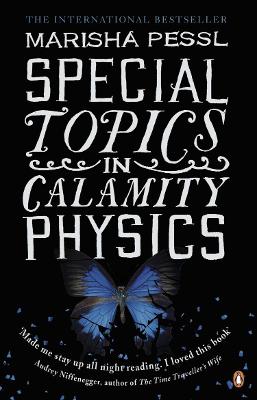Reviewed by Amber (The Literary Phoenix) on
In some ways, it was difficult to read this book just because it was set up like an incredibly long MLA essay. I found myself skimming over things when they got incredibly scientific. Only once did I feel like I had missed something when I skipped sections, and the time that I did feel as though I missed something, going back and re-reading it twice, thoroughly didn't give me any more closure. I think those who read this book very closely will have it figured out long before I did.
I found the writing to be very careful and very deliberate. I think this book is an excellent example to aspiring writers about the importance of relevant information and careful editing - every word in this book was there for a reason. Regardless of whether or not it was an enjoyable book, it was an excellent piece of writing.
As for the characters, they were remarkably real-to-life. If you're looking for a happy ending or beautiful, romantic characters, there isn't a single one to be found. All the characters are either depressingly shallow people (note: I said people, not characters. The characters are very round.) or else they are a lying caricature of themselves. It's difficult to find a single character to sympathise with, to care about. Mostly, as the reader, I found that I wanted answers. That was why I kept reading. But I didn't read the last chapter, which was in the format of a "final exam". I had read enough, and I think that even without that supposedly knowing the deepest, darkest secret that chapter may reveal, I know enough.
Reading updates
- Started reading
- 28 February, 2011: Finished reading
- 28 February, 2011: Reviewed
